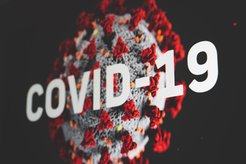No false certainty: Germans want open communication of uncertainty in the coronavirus pandemic
Nationwide study on the communication of scientific data
The COVID-19 pandemic has once again highlighted the uncertainty inherent in science. The results of a Germany-wide study conducted by researchers at the Max Planck Institute for Human Development and Charité – Universitätsmedizin Berlin show that most Germans want to be openly informed about this uncertainty. The results have now been published in the journal JAMA Network Open.

Since the SARS-Cov-2 virus was first identified in December 2019, new scientific findings on the spread of the virus, symptoms of COVID-19, and new treatments have been reported almost daily. What is valid one day may be outdated the next. Likewise, predictions on how the number of infections will develop by Christmas and what effects the current ‘circuit breaker’ lockdown will have, as well as current estimates of the reproduction number (R), are anything but certain.
“Politicians and health experts sometimes shy away from communicating scientific uncertainty, fearing that it will generate mistrust. But presenting uncertain aspects of the pandemic as certain may also have negative effects on citizens’ trust if those reports later prove to be invalid,” says Odette Wegwarth, lead author of the study and Senior Research Scientist in the Center for Adaptive Rationality at the Max Planck Institute for Human Development as well as associated researcher in the Institute of Medical Sociology and Rehabilitation Science at Charité.
To investigate people’s preferences for health communications with varying degrees of scientific uncertainty in the context of COVID-19, a team of researchers from the Max Planck Institute for Human Development and Charité ran an online survey with a representative sample of 2,011 Germans. Participants were shown four scenarios that communicated information on the future course of the pandemic with varying magnitudes of scientific uncertainty. In the version with the highest degree of uncertainty, information on, for example, current infections, deaths, and the R number was communicated in terms of ranges rather than precise values. The text also emphasized that “it is uncertain whether the differences observed are due to random fluctuation or are the first signs of the onset of a second wave of coronavirus infections.”
In contrast, the version with the lowest degree of uncertainty reported precise values and stressed that “this development in case numbers leaves no doubt that a second wave of infections has already begun.” Each version concluded with the same appeal, namely, to continue taking preventive measures to protect risk groups, such as wearing a face mask in public places.
Participants were then asked which of the versions would be most suitable for informing people about the future course of the COVID-19 pandemic. The largest group of respondents (32%) chose the version expressing the highest degree of uncertainty. This version was also the most likely to persuade people to comply with containment measures. Overall, more than half of the participants (54%) preferred one of the versions that conveyed numerical and/or verbal uncertainty over the versions that did not. The version that left uncertainty unmentioned proved the least popular, being chosen by just 21% of respondents. Interestingly, communication expressing uncertainty appeared to be particularly effective for motivating those who are currently skeptical of governmental containment measures to comply with those measures.
“To better engage with those people who are currently skeptical about the government’s coronavirus measures, the government and the media should have the courage to communicate uncertainties more openly,” recommends Gert G. Wagner, co-author of the study and Max Planck Fellow at the MPI for Human Development.
Original Publication:
Wegwarth, O., Wagner, G. G., Spies, C., Hertwig, R. (2020) Assessment of German Public Attitudes Toward Health Communications With Varying Degrees of Scientific Uncertainty Regarding COVID-19. JAMA Network Open. https://doi.org/10.1001/jamanetworkopen.2020.32335











